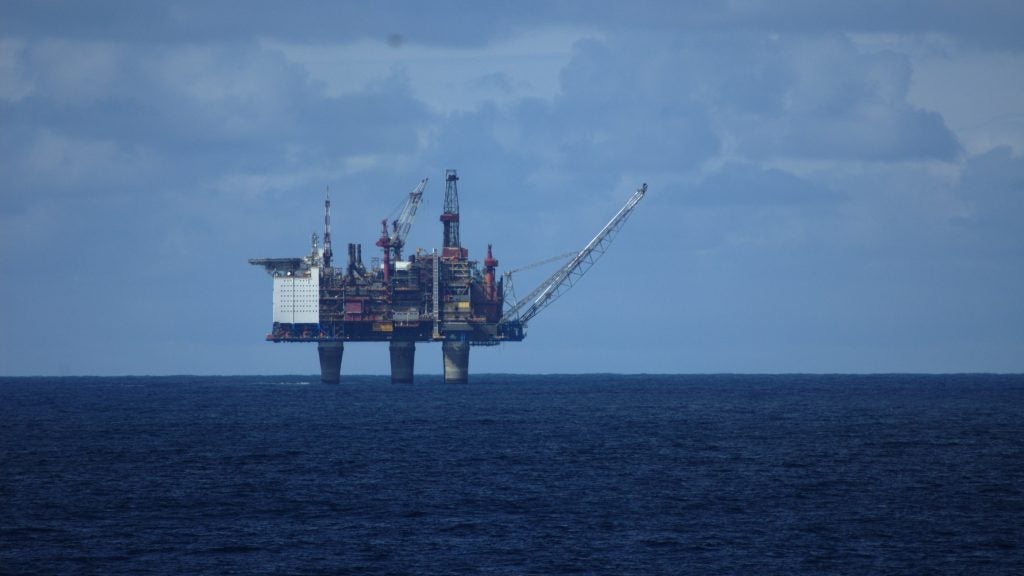

As the Scottish referendum campaign moved into its final fortnight, the talk of an ‘oil bonanza’ and an ‘independence boost’ that followed the release of a report by business group N-56 into the potential contribution of offshore hydrocarbons resonated perfectly with the tenor of those robust September debates.
It was "economic and political dynamite," according to Robert Gordon University (RGU) professors Alex Russell and Peter Strachan, writing on the independent news website The Conversation. Many in the Yes camp heralded it as the final, decisive blow to the ‘Better Together’ case.
It is not hard to see why. The Scotland Means Business: Oil & Gas Part Three – Offshore Hydrocarbon Opportunity report argued that unconventional hydrocarbon recovery could help extend the life of the North Sea by a century, and boost tax revenue by perhaps a further £300 billion – if not more. Although the publishers have undeniably pro-independence leanings, the fact remains that the total tax paid to the UK Treasury to date from conventional production is estimated at around £313 billion. Offshore fracking, they were suggesting, could double that. It seemed to have all the makings of a real game changer.
A different landscape: after the Scottish referendum
Two months on from the referendum, however, things look a little different. Boost to the cause or not, the prospect did not actually result in an independent Scotland, the price of crude oil recently hit a four-year low, and the sector’s Q3 2014 Business Sentiment Index published by Oil & Gas UK at the end of October, moved into negative territory for the first time since 2009.
How well do you really know your competitors?
Access the most comprehensive Company Profiles on the market, powered by GlobalData. Save hours of research. Gain competitive edge.

Thank you!
Your download email will arrive shortly
Not ready to buy yet? Download a free sample
We are confident about the unique quality of our Company Profiles. However, we want you to make the most beneficial decision for your business, so we offer a free sample that you can download by submitting the below form
By GlobalDataSee Also:
In addition, Saudi Arabia seems to be playing a game of short term pain, for long term gain, in an attempt to secure its future market position by sitting out lower prices, while the US shale gas industry is forced below its production cost margin.
Far the from the eyes of protestors offshore fracking holds obvious appeal, but is it technically even possible?
In this new landscape, what now are the prospects for the North Sea’s unconventional reserves and just how viable is offshore fracking in general?
Fracking Scotland: advances in technology
"Offshore fracking has been technically viable and in use for over 20 years," says Professor Russell, who holds the Chair of Petroleum accounting at RGU, pointing to its established use to increase permeability in conventional O&G operations. He says that recent advances in technology have now ratcheted up the scale of potential unconventional operations and there has been a scramble to grab a slice of the huge offshore shale deposits of oil and gas in the Gulf of Mexico.
"Gulf of Mexico offshore fracking will happen relatively soon if oil prices rise to, say, $110 a barrel. In Scotland offshore fracking is likely to become viable at some point in the future, but it is difficult to say when. I would not be surprised if offshore fracking was taking place in Scotland in 2035," he adds.
That timing could prove critical for Scotland, if the nascent fracking industry is to be the means by which jobs are safeguarded and operations offshore are to continue without interruption, as John Howell, Professor of Geology and Petroleum Geology at Aberdeen University explains.
"The oil industry is notoriously conservative so it could take a while," he says. "However it needs to be within the next ten or twenty years to be able to benefit from the existing infrastructure."
From a technical standpoint, fracking Scotland – or anywhere else for that matter – is clearly a feasible prospect; the technique is already commonly used in conventional reservoirs and recent advances in geo-steering and logging-while-drilling methods have made it even more effective. Whether it is commercially viable, however, still remains to be seen.
Million dollar question: the economic hurdle
"Fracking is routine offshore," says Howell. "However, will unconventional plays be developed offshore? That’s a million dollar question. The key hurdle is cost. If it can be proved to be economic then it will be mainstream." For now at least, that is the sticking point.
It seems there is a fundamental problem; although the potential is enormous – the British Geological Survey estimates for the UK alone put the total offshore shale gas resource at between five and 10 times its onshore equivalent – there is a very steep depletion rate. David Hughes, geoscientist and Fellow of the Post Carbon Institute at Santa Rosa in California, cites data from onshore wells, which demonstrates that production rates often decline by over 70% in their first year – and can tumble to just 5% of their original output within three.
Keeping up production means new wells, but while the need for continuous drilling that necessitates may be a problem for entirely novel unconventional plays, for those which, as Howell alluded to, can make use of pre-existing offshore infrastructure, this is likely to be much less of an issue. Never-the-less, there is no escaping the markets.
Unconventional economics: a fall in oil prices
"If the recent fall in oil price persists or falls further then offshore fracking wells will be uneconomic," Russell says. "However, as demand for oil and gas is likely to grow as the world population increases the probability is that oil prices will rise in the longer term. By 2050 prices may well be $150 a barrel in today’s money and then offshore fracking will be economically viable."
There are evidently those who think it will – and 2014 has seen more than its share of unconventional suggestions. Dr Chris Cornelius, founder of Cuadrilla and now Nebula Resources, spoke in February of fracking the Irish Sea, and promises of a ‘second bite’ at the North Sea via underground coal gasification followed from oil pioneer Algy Cluff of Cluff Natural Resources, and Five-Quarter’s Dr Harry Bradbury. In addition, of course, Trapoil is eyeing the Kimmeridge Clay central to the N-56 report, and there are reports of interest on the Danish side of the North Sea, from Maersk Oil and the state-owned Nordsofonden too.
Uncertain future: the offshore fracking industry
Will all this interest ultimately translate into the offshore fracking industry promised? Russell says that although nothing can ever be certain in the oil industry, given the huge investment that has already been made to develop fracking technology, there is every chance that offshore fracking will be mainstream in 50 years.
As offshore ‘frac pack’ operations continue to grow environmental campaigners are beginning to take notice.
"That said," he adds, "sustained low oil prices or some huge environmental disaster in offshore fracking operations would spoil the potential offshore fracking bonanza."
They may not be the only hurdles to face. Many things have already happened in the weeks following the Scottish referendum that have ramifications for the industry. The oil low, for example, which would have torn a gaping hole in an independent Scotland’s budget, could still be a major threat to offshore investment – but arguably the most significant development since 16th September was the IPCC’s call for fossil fuels to be phased out by the end of the century.
If it becomes clear over the course of the next few decades that the world has taken heed, then the real question would be, will fracking unconventional hydrocarbons ever get the chance to prove its worth commercially, before it simply runs out of time? We may just have to wait and see.


.gif)


